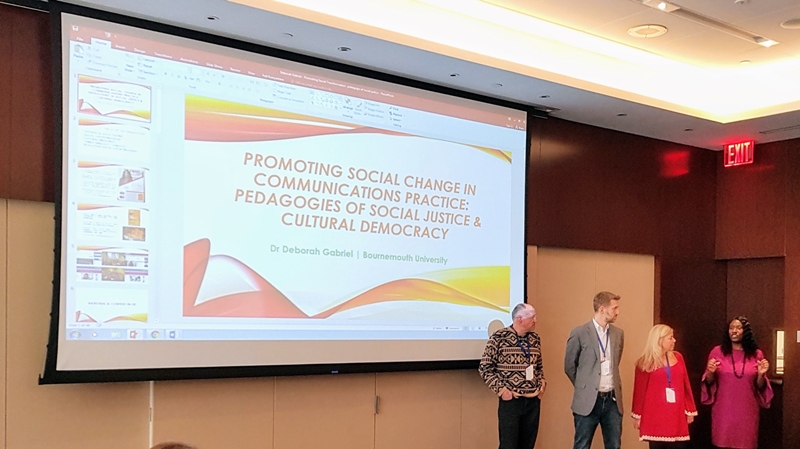
My research, teaching and professional practice have always been centred on equality and social justice, especially in relation to race, ethnicity, culture and gender.
Prior to joining BU in 2014, I established an influential network of intellectuals and scholar-activists committed to the cause of race equality – Black British Academics. A primary consultancy activity we’ve been involved in over the past few years is addressing the lack of ethnic and cultural diversity in the higher education curriculum.
It was from these origins that I developed the final year optional unit in the Faculty of Media and Communication – Media Inequality in 2014/15. The unit centres on critical engagement with historical and contemporary issues around race, ethnicity and culture and their relationship with power across the media and in communications practice. It aims to facilitate the development of cultural competencies that can be applied in a professional context to a range of communication industries.
The unit has run for two academic years in 2016/17 and 2017/18 and during this time I collected quantitative data via an end of unit survey through which students reported high levels of critical consciousness and agency and perception of greater levels of cultural competence. It attracted praise from the external examiner and two SUBU ‘You’re Brilliant’ awards that mention the unit and its focus on social justice. In 2018/19 I won the Academic Excellence Award in the Dorset Ethnic Minority Awards and I was presented with Staff Member of the Year Award by SUBU at their BME Awards last week.
The sector, student and community recognition of my pedagogies around social justice and equality created a strong motivation for me to extend impact beyond my own teaching practice. Over the years I have shared my teaching strategies with the international academic community through education conferences in Hawaii, Washington DC, New York and Austin, Texas, between 2016 and 2018. The positive feedback and engagement I received led me to develop the 3D Pedagogy Framework; an inclusive teaching strategy that aims to decolonize, democratize and diversify the higher education curriculum.
In May of this year I applied for ACORN funding through the Early Career Researcher Network and was successful in gaining a major award. This enabled me to develop and pilot a 3D Pedagogy workshop that I delivered at BU, De Montfort University and the Canada International Conference on Education in Toronto to a total of 27 participants.
The findings from this study documented in a forthcoming journal article suggest 3D Pedagogy is an effective approach to enhance the cultural competencies of educational practitioners and promote critical reflection; important steps towards transforming the curriculum and the student learning experience.
My teaching, research and professional practice on issues around race and equality over the past few years have occurred during an era of increased media and political focus on the curriculum and student outcomes. Proportionally, more students of colour attend university and with increased competition for student recruitment, ignoring longstanding racial disparities in higher education has financial implications for HEIs.
It is within this climate that the Office for Students recently announced plans to publish national data on attainment gaps by institution to incentivise HEIs to develop concrete measures to address ethnic disparities in progression and attainment. Access and Participation Plans require HEIs to demonstrate how disparities in progression and attainment are being tackled and evaluated with documented evidence.
The Access Excellence and Impact Committee (AEIC) was formed in 2017/18 in response to these sector changes to lead education activities, replacing the Fair Access Group. Membership includes all Executive Deans and relevant Heads of Professional Service, the Head of the Centre of Excellence in Learning (CEL), and SUBU representation.
In July this year the AEIC put out a call for projects aligned with its priority themes of access, success and participation and especially strategies to address gaps in progression and attainment. Having just completed my ACORN project, with preliminary findings of the 3D Pedagogy Workshop being extremely positive; I applied and was successful in gaining an award.
As a result, 3D Pedagogy (which is fully endorsed and supported by SUBU), is to be embedded across BU through delivery of the workshop to all 20 departments, as part of a two-year project. The workshop will be integrated into the PG Cert in Academic Practice offered through CEL and embedded into Academic Quality through future revision to 2B: Programme Structure and Curriculum Design Characteristics. It is being developed as a case study for BU2025 (inclusivity) and will also be promoted through the HEA Fellowship route as an opportunity to develop a case study that meets the UKPSF across Activity (A1, A2), Core Knowledge (K2, K3) and Professional Values (V2, V4).
In addition to a forthcoming paper in the International Journal of Technology & Inclusive Education that documents my pilot study funded by the ACORN award; I have also secured a book contract with Routledge for a forthcoming title that incorporates 3D Pedagogy centred on media education. The book is part of a series on media literacy co-edited by Prof Julian McDougall, Head of the Centre for Excellence in Media Practice (CEMP), of which I am a member and through which I have been developing my education research.
*My AEIC Award provides funding for a research assistant at grade 6 to support the project, working one-day a week for the duration. The role will involve data collection and analysis as well as administration of the project, including assistance in the development of electronic resources. While this post is being advertised externally, internal applications are welcome, ideally from PGRs with an understanding of issues around race, ethnicity and culture in higher education as well as experience of handling quantitative and qualitative data.
I’m pleased to have the opportunity to lead a major project driving changes to education practice at BU, which was facilitated by the ACORN Award, enabling me to pilot the 3D Pedagogy Workshop, and look forward to developing more research in this area.
*Interested parties should contact Dr Deborah Gabriel for further information about the post by email to: dgabriel@bournemouth.ac.uk
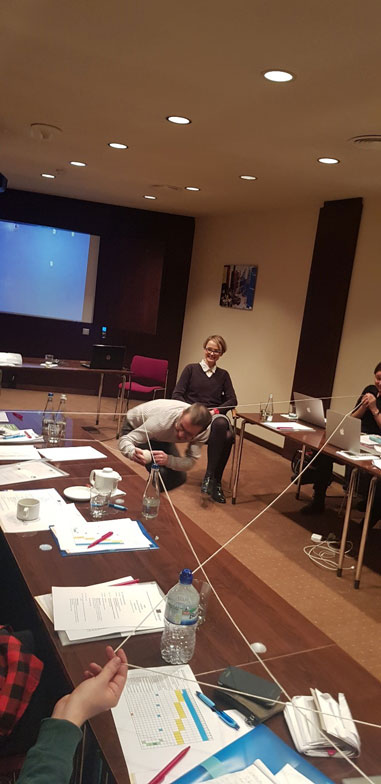
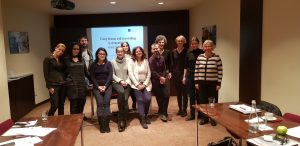
 usiness Collaboration organised by the University of Helsinki from the 7th to 9th November, 2018.
usiness Collaboration organised by the University of Helsinki from the 7th to 9th November, 2018.
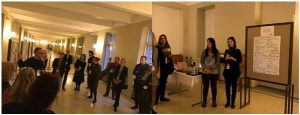


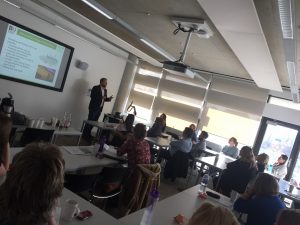
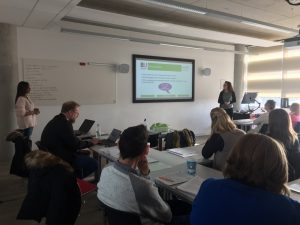
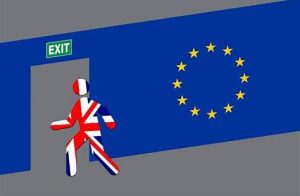 On the third day to Christmas, my RKEO friend gave to me, 3 more months in the EU.
On the third day to Christmas, my RKEO friend gave to me, 3 more months in the EU.


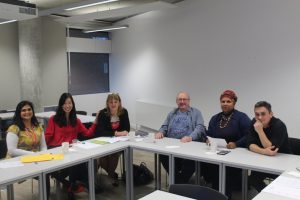
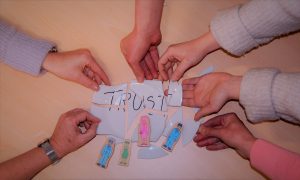 Sustainability and consumer trust go hand-in-hand. Organisations need to understand what drives trust and how to build trust if they are to achieve sustainability. This was the message that Associate Professor Julie Robson delivered as part of her keynote presentation at the LIGUE (Laboratoire Interdisciplinaire en Gestion Université-Entreprise) in Carthage Tunisia.
Sustainability and consumer trust go hand-in-hand. Organisations need to understand what drives trust and how to build trust if they are to achieve sustainability. This was the message that Associate Professor Julie Robson delivered as part of her keynote presentation at the LIGUE (Laboratoire Interdisciplinaire en Gestion Université-Entreprise) in Carthage Tunisia.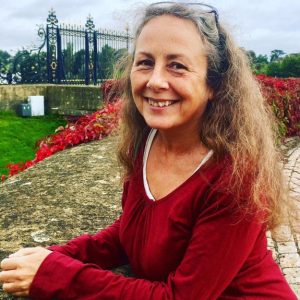 Theresa provides support to the University-wide Research and Knowledge Exchange Development Framework, (RKEDF), which incorporates a suite of pathways providing developmental support to academics at every stage of their careers.
Theresa provides support to the University-wide Research and Knowledge Exchange Development Framework, (RKEDF), which incorporates a suite of pathways providing developmental support to academics at every stage of their careers.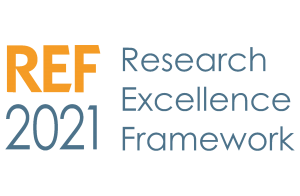
 Apologies that this is a brutalisation of the Christmas song, but we wanted to share with you 12 useful bits of information in the days leading up to the Christmas break (yeh, 12 working days to go!). Here comes the first one!
Apologies that this is a brutalisation of the Christmas song, but we wanted to share with you 12 useful bits of information in the days leading up to the Christmas break (yeh, 12 working days to go!). Here comes the first one!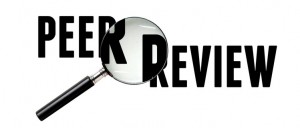 The Times Higher Education (THE) have
The Times Higher Education (THE) have 










 Fourth INRC Symposium: From Clinical Applications to Neuro-Inspired Computation
Fourth INRC Symposium: From Clinical Applications to Neuro-Inspired Computation Writing policy briefs
Writing policy briefs Upholding Excellence: The Concordat to Support Research Integrity
Upholding Excellence: The Concordat to Support Research Integrity Today’s Documentation Will Serve Tomorrow’s Justice
Today’s Documentation Will Serve Tomorrow’s Justice ECR Funding Open Call: Research Culture & Community Grant – Application Deadline Friday 12 December
ECR Funding Open Call: Research Culture & Community Grant – Application Deadline Friday 12 December MSCA Postdoctoral Fellowships 2025 Call
MSCA Postdoctoral Fellowships 2025 Call ERC Advanced Grant 2025 Webinar
ERC Advanced Grant 2025 Webinar Horizon Europe Work Programme 2025 Published
Horizon Europe Work Programme 2025 Published Horizon Europe 2025 Work Programme pre-Published
Horizon Europe 2025 Work Programme pre-Published Update on UKRO services
Update on UKRO services European research project exploring use of ‘virtual twins’ to better manage metabolic associated fatty liver disease
European research project exploring use of ‘virtual twins’ to better manage metabolic associated fatty liver disease